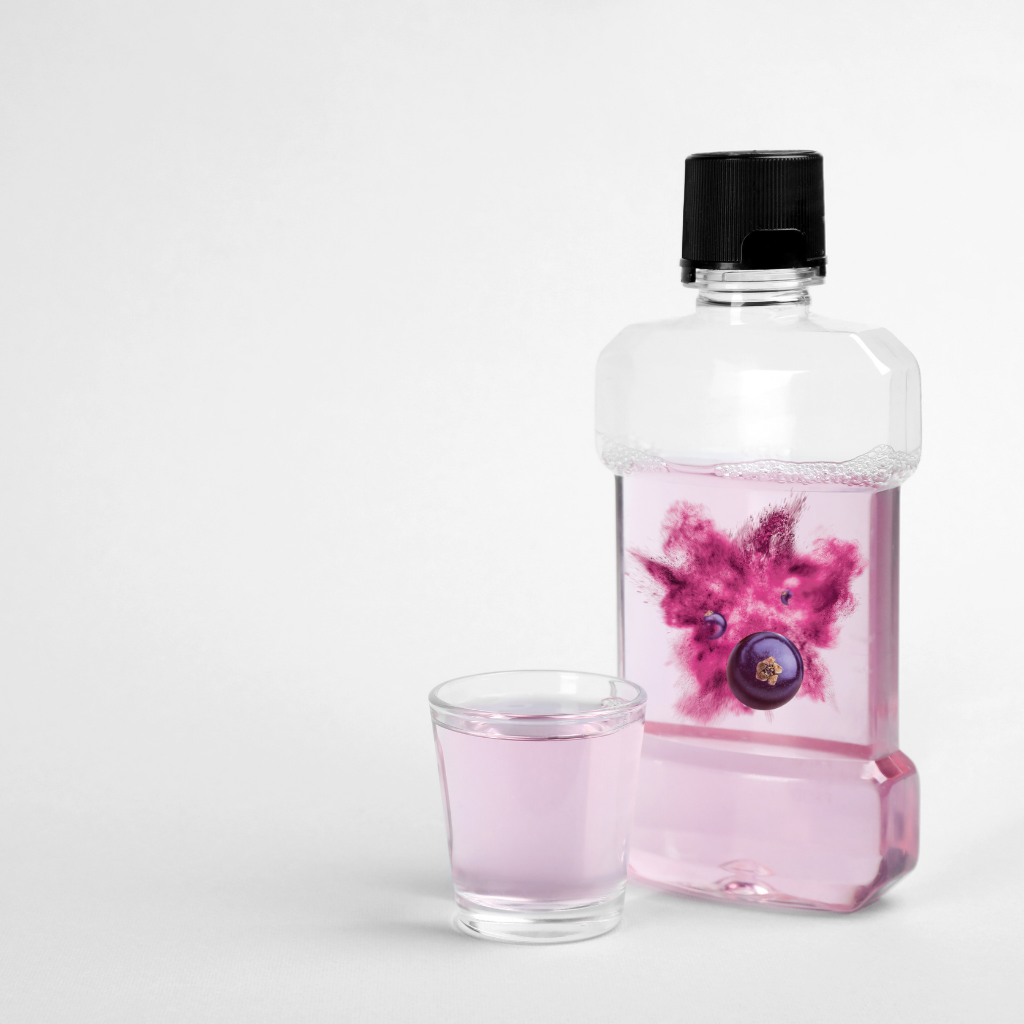
You knew blackcurrants were good for your general immunity, for staying active and feeling well, but did you know that berries in general, and especially blackcurrants, have been identified as being potentially beneficial for oral health?
A team of German researchers at the University Hospital in Jena even recently compared the effectiveness of highly concentrated organic blackcurrant juice against harmful bacteria with the chemical chlorhexidine, a key ingredient in prescription mouthwash. For the results of their experiment, keep reading below.
Vitamin C
The story starts with Vitamin C, an essential nutrient for the normal structure of skin, bones, teeth and gums. But Vitamin C has also been shown to play an important role in the "prevention and treatment of various oral infectious diseases, such as periodontitis," and to reduce the "cytotoxic and apoptotic effects" of bad oral bacteria.
And since blackcurrants without any pesticide treatment have been shown to contain higher levels of Vitamin C, you'd best source ViBERi Organic New Zealand Blackcurrants.
Polyphenols and Anthocyanins
Other antioxidants in berries — and again, with much higher bioavailability in blackcurrants than other berries — also display an interesting range of effects with applications to oral care, besides research that has shown more well known anti-cancer and anti-inflammatory effects.
Finnish researchers have found that blackcurrants, primarily due to their polyphenol content (compounds like anthocyanins, proanthocyanidins and flavonols), "have antiaggregation potential on common oral bacteria," i.e. can prevent viable colonies of bacteria from forming on teeth and gums.
Fortunately, New Zealand Blackcurrants have also been shown to have higher phenolic content than those berries grown elsewhere for a variety of possible reasons!

Returning to the German researchers at the start of this post, blackcurrants were considered for their potential antibacterial and antifungal properties. The team tested concentrated juices of several different types of organically grown berries against chlorhexidine — a control antiseptic, considered one of the most effective available — on human gums to see whether the juices would have similar effects against common harmful dental bacteria. They also tested how cytotoxic, or destructive to cells, the juices were compared to the mouthwash ingredient.
They found that "blackcurrant juice caused the strongest antibacterial effect of all juices tested. The strong antimicrobial effect of blackcurrant on pathogenic bacteria has been observed by other authors, too." In fact, blackcurrant juice in some concentrations equalled chlorhexidine in antibacterial effect against some species of bacteria, even outperforming in effectiveness against one, while having significantly lower cytotoxic effect on gum cells even in very high concentrations.
So, if not for the Vitamin C content, and if not for the polyphenols and antimicrobial effects, give organic blackcurrants a try: we promise they'll brighten up your smile one way or another!




Leave a comment